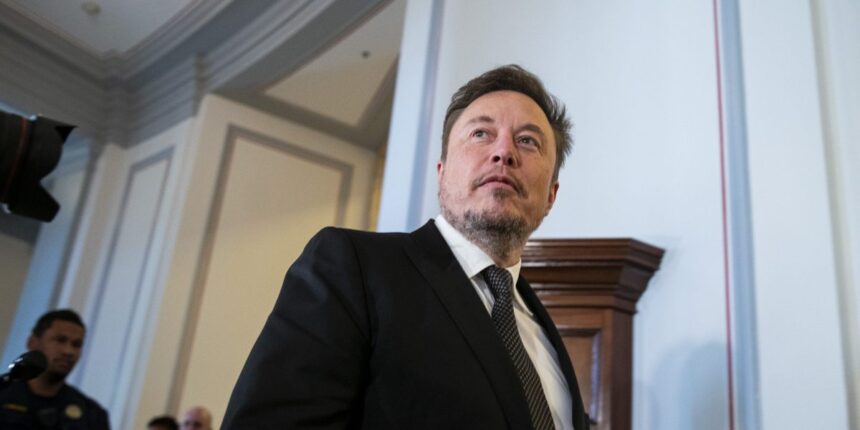
Elon Musk isn’t one to sit on his laurels. The billionaire Tesla CEO and world’s richest person could have retired long ago, but instead he’s leading six companies and shaking up industries along the way. So what drives him?
“He’s a drama addict. He doesn’t like to coast,” said Walter Isaacson, who’s written a new biography of the mercurial entrepreneur and spent two years shadowing him.
Speaking on the latest episode of the Lex Fridman Podcast, Isaacson noted that at the beginning of last year, Musk “was riding high,” with sales roaring at Tesla and missions succeeding routinely at his SpaceX, one of the world’s most valuable private companies.
“And yet he’d said, ‘You know, I still want to put all my chips back on the table. I want to keep taking risks. I don’t want to savor things,’” Isaacson recalled.
That attitude helps explain why Musk started secretly buying shares of Twitter early last year and—after a months-long legal drama—fully acquired the company in October. In the months that followed, Musk completely revamped Twitter, firing most of its employees and insisting those who remain commit to a hardcore work culture. He renamed the company X, a move many saw as reckless brand destruction considering “tweet” had become a common verb.
Musk, a self-described “free-speech absolutist,” also alienated many advertisers, who were leery over reported spikes in hate speech on the platform. Earlier this month, he threatened to sue the Anti-Defamation League, claiming the Jewish-led civil rights organization was “trying to kill this platform by falsely accusing it and me of being anti-Semitic.” At the same time, he seemed to suggest the company had lost 90% of its value since his $44 billion takeover.
But why bother taking over Twitter at all—and risk getting mired in controversy—when things were going so well at Tesla and SpaceX?
“Elon Musk is cut to be an executive in a highly intense situation, so much so that when things get less intense—when they actually are making enough cars and rockets are going up and landing—he thinks of something else so he can surge and have more intensity. He’s addicted to intensity,” said Isaacson.
Marc Andreessen, a general partner at venture capital firm Andreessen Horowitz, said something similar this month while speaking on the Huberman Lab podcast. Discussing the personality traits of disruptive entrepreneurs, he said, “There is this decision that people have to make, which is, ‘Okay, if I have the latent capability to do this, is this actually what I want to spend my life doing? And do I want to go through the stress and the pain and the trauma and the anxiety and the risk of failure?’”
Musk, he said, is a rare individual “who just can’t do it any other way…That’s why he’s running five companies at the same time and working on a sixth.”
For the new biography, entrepreneur and venture capitalist Peter Thiel told Isaacson that Musk was addicted to the thrill of risk. Speaking of Tesla and SpaceX, he said, “Silicon Valley wisdom would be that these were both incredibly crazy bets. But if two crazy companies work that everyone thought couldn’t possibly work, then you say to yourself, ‘I think Elon understands something about risk that everybody else doesn’t.’”
Isaacson described Musk’s addiction to intensity a “super power,” adding: “There is always a big mission above it. So I would say it’s an empathy towards people in the big picture. It’s an empathy towards humanity more than the empathy towards the three or four humans who might be sitting in the conference room with you.”
He said in that regard Musk has traits similar to other disruptive entrepreneurs, such as Microsoft founder Bill Gates: “They always have empathy for these great goals of humanity, and at times they can be clueless about the emotions of the people in front of them, or callous sometimes.”
Gates, it’s worth noting, also spoke to Isaacson for the biography, saying that Musk became “super mean to me” after learning he had shorted Tesla’s stock, or bet that it would decline in value. “But he’s super mean to so many people,” he added, “so you can’t take it too personally.”







